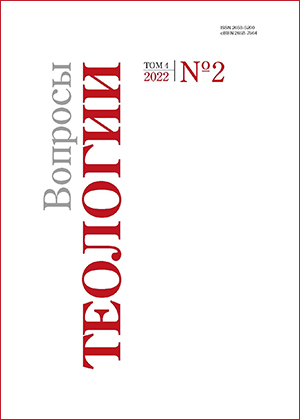Biomedicine and the challenge to Christian values: Orthodox bioethics in the age of biomedical technologies
DOI:
https://doi.org/10.21638/spbu28.2022.205Abstract
For thirty years Russia has been living under the conditions of a market economy, and the age of biomedical technology has coexisted for the same amount of time. The Orthodox community views the progress of biomedicine as a challenge to Christian values that needs adequate ethical reflection and response. The response to this challenge is articulated by Orthodox bioethics, which is a systematic knowledge of the boundaries of permissible biomedical manipulation of human life and death. Orthodox scientists who develop bioethics see their task as protecting human dignity, the traditional family, and other Christian values from the dangers posed by the consequences of the spread of new technologies. Ethical problems associated with the spread of in vitro fertilisation (IVF) technology continue to be of relevance for Orthodox bioethics all these years, since they allow the manipulation of human embryos not as individuals, but as simple biological objects. Some of the bioethical proposals drafted by Orthodox scientists have been paired with criticisms of emerging legal regulations and government decisions aimed at supporting IVF. Equally important to Orthodox bioethics are the problems associated with the development of transplantology, since in Russia the legal framework allows organ donation from a deceased donor based on the presumption of consent. Now, the field of transplantology continues to be regulated by legal norms adopted in the early 1990s, which explains the willingness on the part of Orthodox scientists to challenge some of these norms.
Keywords:
biomedical technologies, Christian values, Orthodox bioethics, in vitro fertilisation, embryos, transplantology, organ harvesting
Downloads
References
References
Downloads
Published
Issue
Section
License
Articles of "Issues of Theology" are open access distributed under the terms of the License Agreement with Saint Petersburg State University, which permits to the authors unrestricted distribution and self-archiving free of charge.




